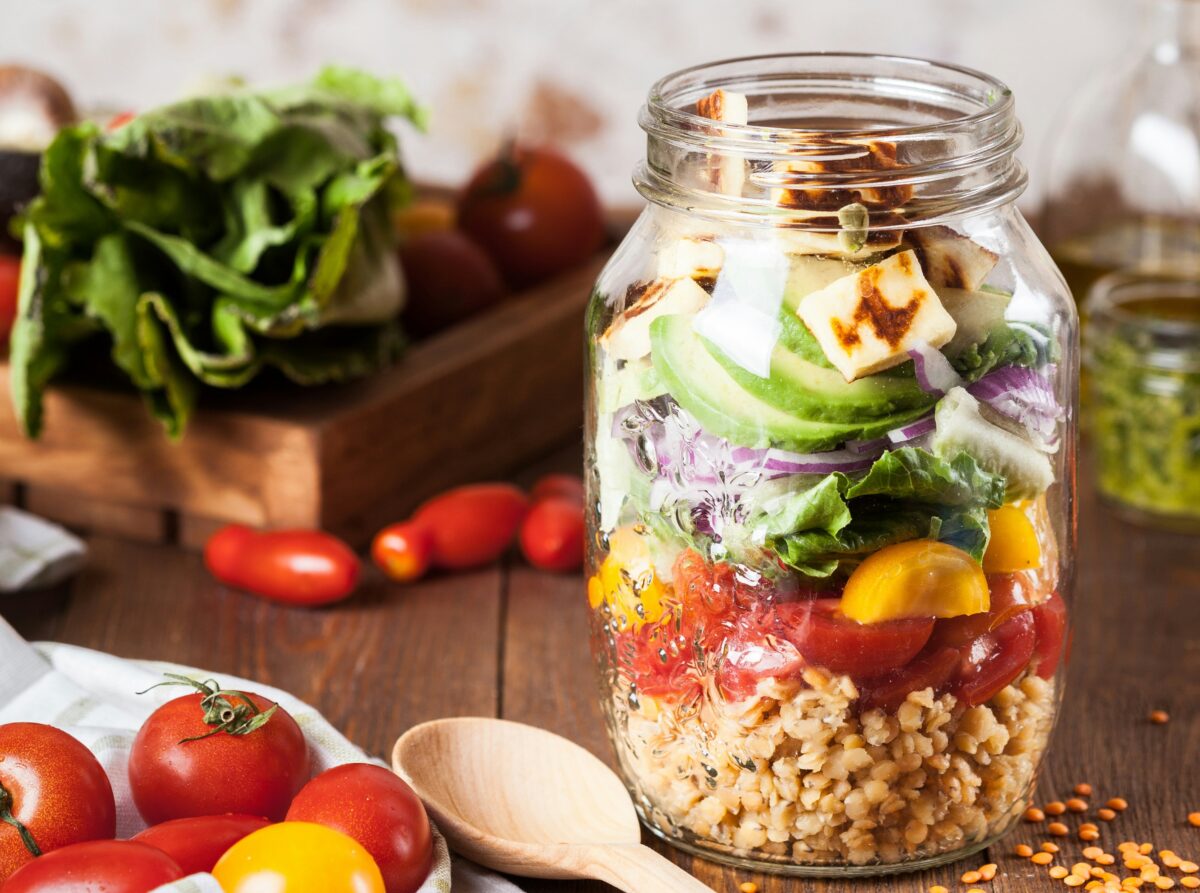
The Mediterranean diet is inspired by the traditional eating habits of the countries bordering the Mediterranean Sea, like Greece, Italy, and Spain. It’s not about strict calorie counting or cutting out entire food groups. Instead, it focuses on wholesome, nutrient-dense foods that support overall health. And when you’re prepping for fertility treatment, that’s exactly what your body needs.
Here’s why the Mediterranean diet is such a great fit for fertility:
- It’s Packed with Antioxidants – The diet is rich in fruits, vegetables, and olive oil, which are high in antioxidants. These help reduce oxidative stress in the body—something that’s been shown to impact fertility.
- It Uses Healthy Fats for Hormonal Balance – Healthy fats, like those found in olive oil, nuts, and fatty fish, are crucial for hormone production and regulation. Balanced hormones are key when you’re going through IVF.
- Rich in Fiber – Whole grains, fruits, and vegetables provide plenty of fiber, which is great for digestion and maintaining steady blood sugar levels. Balanced blood sugar can help keep your hormones in check.
- Anti-Inflammatory Benefits – The Mediterranean diet is naturally anti-inflammatory, thanks to omega-3-rich fish, nuts, and fresh produce. Reducing inflammation can create a more welcoming environment for implantation.
- Supports a Healthy Weight – The Mediterranean diet supports a balanced approach to maintaining a healthy weight without feeling deprived or restricted.
5 Key Elements You Can Focus on to Adapt Your Current Diet
1. Focus on Plant-Based Foods
The Mediterranean diet is all about filling your plate with colourful fruits and vegetables. These foods are loaded with vitamins, minerals, and antioxidants that can help improve egg and sperm health.
- How to Adapt – Make veggies the star of your meals. Think roasted bell peppers, spinach salads, or a side of grilled zucchini (also known as courgettes). Aim for at least 5-7 servings of fruits and vegetables each day. And don’t be afraid to experiment with new produce you’ve never tried before.
2. Embrace Healthy Fats from Olive Oil and Nuts
Olive oil is a staple in the Mediterranean diet, and it’s rich in monounsaturated fats that support overall heart health and hormone production. Nuts and seeds like almonds, walnuts, and chia seeds are also great sources of healthy fats.
- How to Adapt – Swap out your usual cooking oils for some extra virgin olive oil. Drizzle it over salads, use it to roast vegetables, or dip some whole-grain bread in a small dish of olive oil with a sprinkle of herbs. Try adding a handful of nuts to your morning oats or snack on a few during the day.
3. Enjoy Lean Proteins
Fish, especially fatty fish like salmon and sardines, are rich in omega-3 fatty acids, which help reduce inflammation and support a healthy reproductive system. Other protein sources like legumes (such as lentils and chickpeas), eggs, and lean poultry are also encouraged.
- How to Adapt – Aim to include fish in your diet 2-3 times a week. If you’re not a fan of fish, try incorporating plant-based proteins like lentils, chickpeas, butter beans or quinoa into your meals. They’re easy to add to soups, salads, or even as a base for a hearty Mediterranean-style stew.
4. Whole Grains for Sustained Energy
Whole grains like quinoa, barley, and farro are staples in the Mediterranean diet. They’re a great source of complex carbohydrates, which keep your energy levels steady and provide fiber for a healthy gut.
- How to Adapt – Swap refined grains like white rice and pasta for whole-grain versions. For example, try a quinoa salad with chopped veggies and a lemon-olive oil dressing or serve a barley risotto alongside your favourite protein. These whole grains are great at soaking up all those delicious Mediterranean flavours!
5. Enjoy Dairy in Moderation
The Mediterranean diet includes moderate amounts of dairy, usually in the form of yogurt and cheese. These can be great sources of calcium and probiotics, which are beneficial for gut health.
- How to Adapt – Opt for Greek yogurt with a drizzle of honey and some fresh berries for breakfast or a snack. It’s packed with protein and probiotics. Cheese lovers, rejoice! A little feta crumbled over your salad or mixed into your whole-grain dishes can add a burst of flavour without going overboard.
Finally here are some recommended Ingredients you can grab for your Mediterranean IVF-Friendly Kitchen.
- Extra Virgin Olive Oil: The foundation of Mediterranean cooking. Look for cold-pressed, high-quality options. .
- Canned Chickpeas and Lentils: Great for adding quick protein and fiber to salads and soups.
- Greek Yogurt: Choose plain, unsweetened options for breakfast bowls or smoothies.
- Fresh Herbs (Basil, Oregano, Thyme): These add tons of flavour without needing processed sauces or dressings.
- Fatty Fish (Salmon, Sardines, Mackerel): Fresh or canned, these are packed with omega-3s.
- Whole Grains (Quinoa, Farro, Barley): Perfect for building nutrient-rich meals.
- Nuts and Seeds: Almonds, walnuts, chia seeds, and flaxseeds are great options for snacking or adding to dishes.
- Lean Meats (Chicken, Turkey, Lamb, Beef): These options can also be enjoyed occasionally. They are great for protein, cook with herbs and fresh vegetables for lots of flavour.
Making the Mediterranean Diet Your Own
The best way to make use of a Mediterranean diet is to see it as a way of eating that simply celebrates whole foods, fresh flavours, and balanced living. By bringing some of these principles into your own kitchen, you’re not only supporting your fertility journey but you’re also enjoying delicious, satisfying meals that really nourish your body.
Remember, it’s not about being perfect – as with everything we recommend it’s about finding joy in the process. So, grab that olive oil, explore some new recipes, and get ready to savour the flavours of the Mediterranean. All while giving yourself the best possible foundation for your IVF journey. You’ve got this.
Let us know if you use the Mediterranean diet during your fertility journey and if it’s made any difference to how you feel physically.





























